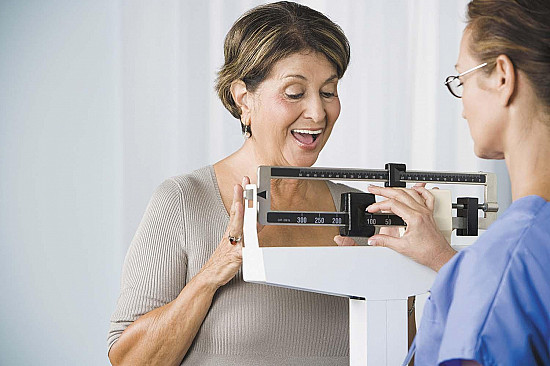
New thinking about plaque in arteries that feed the brain

Want to prevent shifting teeth? Maybe you need retainers

What you need to know about the new dietary guidelines

Food that’s healthier for people and planet can be cheaper, too

New evidence that polyphenol-rich foods help the heart

8 simple ways to reduce ultra-processed foods in your diet

How to curb your stress eating

How to spot Parkinson’s disease symptoms

Heart failure symptoms in women: How they’re different

GERD diet: Foods to avoid to reduce acid reflux
Learn how to reduce salt with these 5 tips
A lower sodium diet is healthier for your heart

If you're like most people, chances are you eat far more than the recommended amount of sodium, one of the main components of salt. Current federal guidelines advise getting no more than 2,300 milligrams (mg) of sodium daily, but the average American consumes about 3,500 mg a day.
Strong evidence from more than 100 clinical trials shows that a lower sodium diet can decrease blood pressure. High blood pressure, which affects one in three American adults, is a key culprit in heart disease.
Most of the sodium we eat—about 75%—comes from processed and restaurant foods, not the salt shaker. Learning how to reduce salt in your diet takes some effort, but these five strategies can help.
1. Eat more fruits and vegetables.
Not only are these foods naturally low in sodium, most are good sources of potassium, a mineral that seems to help lower blood pressure. Choose fresh when possible, but frozen and canned fruits and vegetables are also fine and may be more convenient. Look for no-salt added versions.
2. Choose lower-sodium products.
When shopping, read package labels and choose brands with the lowest levels of sodium that still taste good. There's a surprising degree of variation from brand to brand, since some food manufacturers have already made great strides toward cutting the sodium levels in their products—and others never added as much sodium in the first place.
3. Target the "salty six."
Avoid or try to eat less (or choose lower-sodium versions) of these foods, which contribute the most sodium in the average American's diet:
- breads and rolls
- canned soups
- cold cuts and cured meats
- pizza
- poultry (including fresh poultry, which is often injected with a salt solution, and processed poultry, such as preseasoned fillets and chicken nuggets)
- sandwiches (including burgers) from fast-food restaurants.
4. Be wary when eating out.
Sodium level can vary widely from one dish to another and from one restaurant to another. Check restaurant websites for sodium information before you head out, or ask your server to steer you to low-salt choices. Save high-salt choices for very limited special occasions. Increasingly, chain restaurants are responding to calls for lower sodium, so watch for news about such initiatives by your favorite restaurant group.
5. Spice it up.
One of the easiest ways to reduce the need for added salt is by using spices, dried and fresh herbs, roots (such as garlic and ginger), citrus, vinegars, and wine. From black pepper, cinnamon, and turmeric to fresh basil, chili peppers, and lemon juice, these flavor enhancers can satisfy your taste buds with less sodium. Use cayenne, paprika, parsley, sage, rosemary, or thyme for meats; caraway, basil, dill, marjoram, nutmeg, parsley, sage, or thyme with vegetables; cinnamon, cloves, ginger, or nutmeg with fruit.
For more tips to decrease your sodium and help your blood pressure, check out the Harvard Special Health Report Controlling Your Blood Pressure.
– By Julie Corliss
Executive Editor, Harvard Heart Letter
Disclaimer:
As a service to our readers, Harvard Health Publishing provides access to our library of archived content. Please note the date of last review or update on all articles.
No content on this site, regardless of date, should ever be used as a substitute for direct medical advice from your doctor or other qualified clinician.

New thinking about plaque in arteries that feed the brain

Want to prevent shifting teeth? Maybe you need retainers

What you need to know about the new dietary guidelines

Food that’s healthier for people and planet can be cheaper, too

New evidence that polyphenol-rich foods help the heart

8 simple ways to reduce ultra-processed foods in your diet

How to curb your stress eating

How to spot Parkinson’s disease symptoms

Heart failure symptoms in women: How they’re different

GERD diet: Foods to avoid to reduce acid reflux
Free Healthbeat Signup
Get the latest in health news delivered to your inbox!
Sign Up




